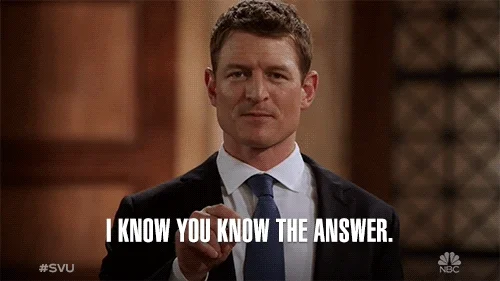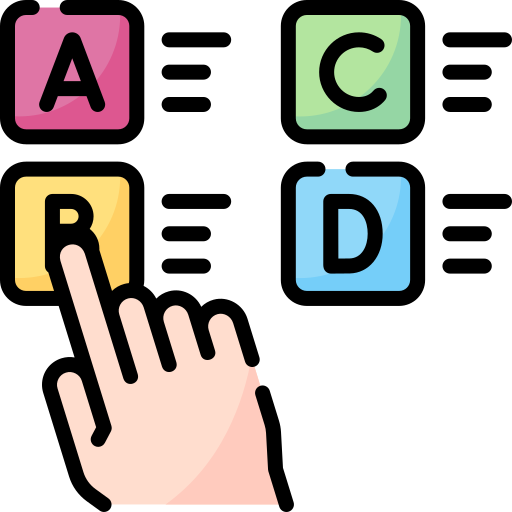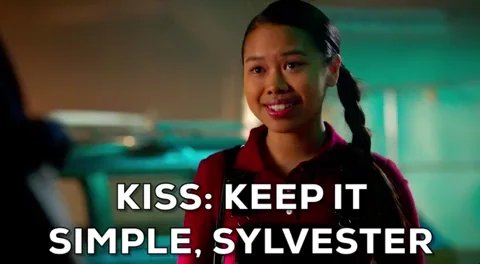"Why were you let go from your previous job?"
Did this question catch you off guard in a past interview?
No sweat. With these 5 simple steps, you'll walk away with a tactful response not just projecting your confidence but also relevant to your next position.

1. Understand why employers ask about previous job terminations
Have you ever wondered why interviewers asked about your past job departure? Understanding their intent behind the question sheds insight on how you can tailor your response.

By asking this question, potential employers are looking to:
Assess how capable you are to perform on the job.
Understand how you handle a challenging situation.
Evaluate how well you may fit into their organization.
Seize this opportunity to demonstrate how your skills and experience are relevant to their company.

2. Be honest and tactful
Explain the cause and hold yourself accountable. This tells potential employers that you’re resilient and reliable.

Do:
Acknowledge mistakes and action
Demonstrate personal growth
Don't:
Deflect blame
Provide vague or evasive response

Jerry was recently laid off and was asked why he left his previous job in an interview. What would be perceived as a genuine answer?
A. "My manager had a hard time appreciating my talents."
B. "It was a mutual decision, and we both agreed it was a good time for change."
C. "The company underwent a restructuring. Sadly, my team wasn't on the roadmap."
D. "I found myself in a toxic workplace and decided to quit to focus on my mental well-being."
Quiz
What's an honest and responsible answer?
3. Keep it simple
Describe the circumstances briefly. Focus on what you have learned and how your resilience has helped with your growth.

Follow the CERF outline to structure a spot-on answer:
Context: Explain the reasons or circumstances for leaving that job.
Emotion: Share your emotional responses when you left the job.
Reflection: List out the lessons or skills you've learned from the experience.
Future: Highlight learned skills for you to excel in the next job.
When your job-exiting story is well-organized and easy to follow, you're projecting tremendous confidence.
Here's an example script:
At my last job, the company decided to shift focus and had to let go of several teams, including mine. It was tough to process the news at first, and honestly, I was a bit concerned about the future.
But I soon took a step back to really reflect on what I had achieved and where my skills could take me. I then realized that the lay-off opened windows to professional growth and new career opportunities.
Since then, I've spent the time refining my skills through training and staying up to date by networking within the industry. I'm now looking forward to bringing my enhanced skill set, along with my adaptability and resilience, to a new role where I can make meaningful impact and grow further.
4. Stay positive
If you're not making mistakes, then you're not doing anything. I'm positive that a doer makes mistakes.
— John Wooden, basketball coach
Steer clear of negative terms like "not", "never", or "hardly", as they can convey a less optimistic message to your audience.
Adopt a positive and growth mindset to craft your response, expressing what you've learned from the challenges. Include the following in your answer:
Express gratitude: Acknowledge the opportunities provided by your previous job.
Highlight professional development: Touch on any extra training or skill development you undertook during or after your previous job. You want to demonstrate your dedication to ongoing growth.
Align with career advancement: Relate your decision to leave with your long-term career goals and aspirations.
Here are some examples:
"The company had to downsize, and I saw it as an opportunity to find new roles that suit my skills."
"Our team got outsourced, which actually gave me the chance to broaden my skill set in this industry."
"A strategic shift at the company led to the decision of layoffs. It turned out to be a great time for me to develop new skills and pursue personal growth."
 Photo by Brett Jordan on Unsplash
Photo by Brett Jordan on Unsplash5. Connect to future jobs
Every experience in your life is being orchestrated to teach you something you need to know to move forward.
— Brian Tracy, motivational speaker and author
Why are you in for an interview? No doubt it's the job you're aiming for. To win your potential employers over, always steer your answers back to the position you're being interviewed for.
Try these strategies:
Stick to the facts.
Draft the response in a positive tone.
Link the experiences to the job you're interviewed for.
Keep your answer concise, lasting between 45 and 90 seconds.
Here are some examples:
"The downsizing experience surprisingly made me more efficient and a better problem solver — skills I believe are essential for this position and any future jobs."
"When my team was outsourced, I looked into remote collaboration and connected my skills with it. I can see that it's a skill that would be really beneficial for this role that requires cross-team collaboration."
"Being let go due to a strategic shift was challenging, but it inspired me to become more adaptable in problem-solving. I firmly believe that serves as a key quality for this position."
Take Action
Your prior working experience is unique by character.
Craft your responses to this question by following the steps here:
Your feedback matters to us.
This Byte helped me better understand the topic.


